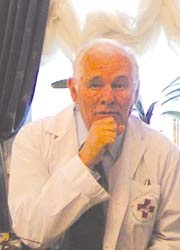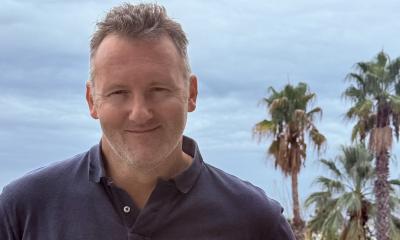Paediatricians for children in disasters and wars
The battle to establish an international team gains ground
Leonid Roshal: 'We are at the beginning of a long road'

Last year, Professor Leonid Roshal, head of the Moscow Research and Clinical Institute of Emergency Children’s Surgery and Trauma was one of the main organisers and speakers at a special disaster and emergency medicine conference held in Moscow. Following this conference, a decision was made to organise paediatric teams in every federal region of Russia, with a defined structure of mutual aid.
As previously reported in European Hospital, Leonid Roshal created the world’s only paediatric team to tend children caught up in disasters and wars. This team first worked in Armenia, after its massive 1988 earthquake. Many disasters followed, despatching the team to all countries, from Algeria to Japan, where there were large earthquakes with many child victims — Egypt, Turkey, India, Chechnya, Pakistan and others. Prof. Roshal knows that paediatricians can help children better than physicians not qualified in this field. However, although he has constantly tried to persuade the international community to organise international paediatrics teams, his efforts proved futile. Why? In conversation with Olga Ostrovskaya, our correspondent in Russia, the professor explained and outlined more recent developments.
‘At first, it was a hypothesis that paediatricians could help children more efficiently; I devoted my life to prove this in practice. Now I speak with confidence: If paediatricians help children – paediatric surgeons, paediatric traumatologists and so on – we can doubly improve the results. That’s why I decided to organise special international teams like ours. We could train the doctors for these teams because we have already had great experience.
‘We arrived in India, for example, and saw a tremendous number of child victims. The hospital was overpopulated with patients and had just one traumatologist! Our team worked round the clock, without rest. But our options were insufficient. If we already had an international team, I could call “John” in London, and say: Get your guys and come here quickly! Our world must have such a network of paediatric teams – I’m sure of it. The task doesn’t need a lot of money – huge disasters happen once in two years on average.’
What has prevented the organisation of an international network?
‘That’s a difficult question. For 20 years I have written different letters - to the Red Cross, the WHO (and I’m a WHO expert!), UNICEF, the UN and so on, asking Don’t you have disasters? They said Yes — and did nothing. I think they first and foremost healthcare managers and they try to find business facilities; but my problem is not business. Conversely, we need business help. In Moscow this March, we held a charitable concert, For the Children of Palestine, to raise money for the team to travel to the East. That’s a necessity every time: to find money to send the team to a disaster or war zone.’
The problem must sometimes be political
‘Sure. China, for example, had that huge disaster, but we knew nothing about people there and nobody asked for help for children. The same occurred with Pakistan: when I called them and suggested help at first they answered No. Later, when we arrived, we received a lot of work and many patients, and then the President awarded me with a special order! Some difficulties always arise between officials in different countries, but that’s not the interest in emergency medicine.
‘I’m a member of the Board of Directors of WADEM (World Association for Disaster and Emergency Medicine). We hold congresses every two years, and I always organise the session Children in disasters and wars, and I know this problem is very important. During the last event, in the Netherlands, we started creating a global system of paediatric teams for work in disaster sites.’
For more information on this, please write to: Mrs Angelina Alekseeva (alexangel17@mail.ru).
01.05.2009





